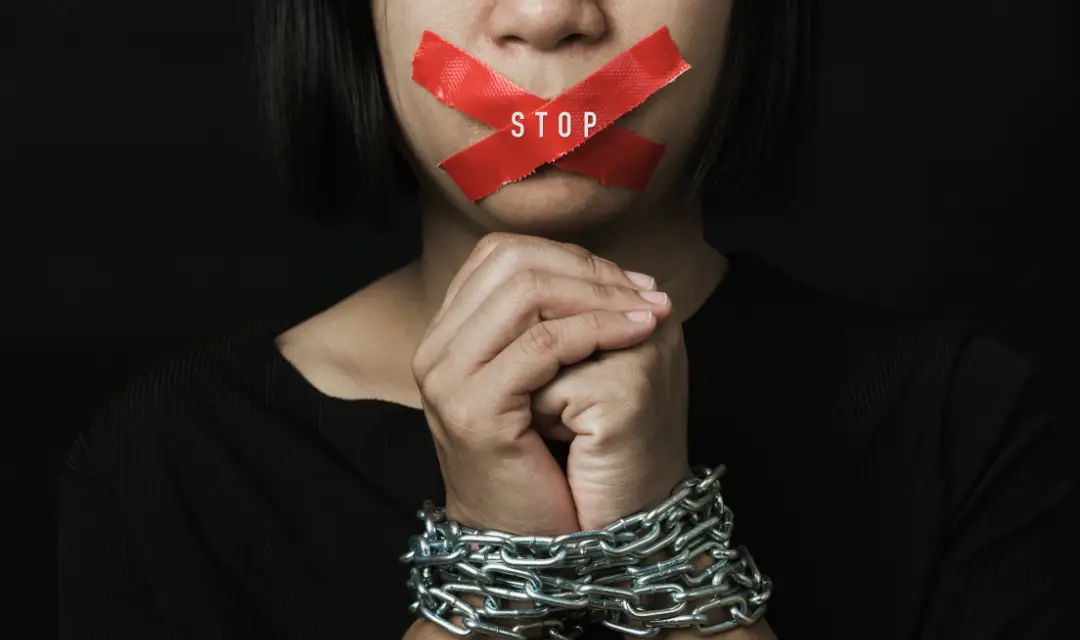How can you exercise your rights? When does such exercise end? The rights of the people provided in the constitution and embodied in statutes facilitates peaceful living for all individuals. It protects the weak and oppressed from mistreatment by those in power, rights in property, rights in labor and contractual obligations and even in legal proceedings.
How can you exercise you rights?
In all cases, one’s rights must be exercised with reasonableness and conscience. Yet, what if one exceeds the limit on his exercise of his right? To what extent can we exercise our right? This paper will attempt to discuss the principle of abuse of rights which accordingly has been the basis upon which tort law was developed.
It is undeniable that there are a lot of circumstances where rights are exercised to the extent that some are prejudicing or injuring another. Although not illegal or not sanctioned, the illicit act cannot be concealed under the guise of exercising a right. For an instance, a person who does not pay his electricity bill on time and as a result the electricity provider cuts its connection of power supply is an example of unjust exercise of a right.1
Disconnection goes into essence of due process. Meralco cannot rely on the contractual right to disconnect if there is non-payment of bills. It is required to provide a 48-hour written notice before a disconnection may be justified.2
What does it mean to exercise your rights?
In exercising your rights [our rights], it has to be in accordance with law, morals, customs, public order, and public policy. While right is a prerogative, it must be exercised in a manner that does not interfere with the concomitant rights of another. Hence, it should not be abused.
The Civil Code particularly in Art. 19 in its chapter on Human Relations, provides that every person must, in the exercise of his rights and in the performance of his duties, act with justice, give everyone his due, and observe honesty and good faith.3
On Art. 20, it states that every person who, contrary to law, willfully or negligently causes damage to another shall indemnify the latter for the same. While Art. 21 laid down the provision that any person who willfully causes loss or injury to another in a manner that is contrary to morals, good customs, or public policy shall compensate the latter for the damage.4
These provisions essentially speaks that any right exercised or duty performed must conform to the standards laid down by law and mindful of the rights of other people, otherwise one becomes liable for damages even if the act done is not illegal per se. Precisely, the object of these provisions is to put an end to abuse of right. The remedy being in the nature of a tort.
Abuse of rights
To constitute abuse of rights in Art. 19, the following elements must concur: (a) there is a legal right or duty; (b) such right is exercised in bad faith; and (c) the intent of prejudicing or injuring another.
It is a sound and just principle that where one wrongfully or negligently does an act which in its consequences is injurious to another, he is liable for the damage caused by such wrongful act. To warrant the recovery of damages, there must be a right of action for a wrong inflicted and a damage resulting to such action. For, wrong without damage, or damage without wrong does not constitute a cause of action.5
The case of Amonoy vs. Spouses Gutierrez,6 has discussed the doctrine of damnum absque injuria. Under this principle, the legitimate exercise of a person’s rights, even if it causes loss to another, does not automatically result in an actionable injury.7
The law does not prescribe a remedy for the loss. This principle does not, however, apply when there is an abuse of a person’s right, or when the exercise of this right is suspended or extinguished pursuant to a court order. In the availment of one’s rights, one must act with justice, give their due, and observe honesty and good faith.8
The Amonoy case has rooted in the settlement of the estate of the deceased Julio Cantolos wherein Amonoy was the counsel of the Fornilda in the partition case. Since Fornilda has no money to pay, he agreed to make use of whatever property he acquires as a security for the payment of Amonoy’s attorney’s fees.9
When the property was adjudicated, Fornilda got his share however was unable to pay Amonoy. Hence, Amonoy sought to foreclose the property. The heirs of Fornilda, the spouses Jose Gutierrez sued Amonoy questioning the validity of his mortgage agreement with Fornilda.10
They alleged that the attorney’s fees he was collecting was unconscionable and that it was based on an invalid mortgage due to the existing attorney-client relationship between him and Fornilda at the time the mortgage was executed.
The Supreme Court held that what Amonoy did is an abuse of right. Article 19, known to contain what is commonly referred to as the principle of abuse of rights, sets certain standards which may be observed not only in the exercise of one’s rights but also in the performance of one’s duties. Here, the demolition of the spouses’s house by Amonoy, despite his receipt of the TRO, was not only an abuse but also an unlawful exercise of such right.11
Another landmark case in which a man named Quiones was accused of failing to pay for an item taken from a store. As a result, the employees of the clothing store humiliate him. The clothing store employees even wrote to Quiones’ employer about the incident, which resulted in a fact-finding investigation conducted by the company in order to cancel Quiones’ corporate credit card.12
Here, the Supreme Court ruled that the clothing store went overboard and tried to force Quiñones to pay. Thus, SC reminded that the exercise of a right must be in accordance with the purpose for which it was established and must not be excessive or unduly harsh.13
Right interfering with another’s may result in award of damages
Undoubtedly, a right, although recognized by law, may nevertheless be a source of some illegality, if the same is performed beyond its lawful objective. On the other hand, while not all acts resulting to another’s injury has penalty specifically imposed to its violators, Article 100 of the Revised Penal Code protects a person from the wrongdoing of another by providing that every person who is criminally liable shall also be civilly liable.
To illustrate, even if a person may not be found guilty after the dismissal of a criminal case, the accused may still be held civilly liable in another proceeding. This is true whether the act done is with or without intent.
In line with the Article 100 of the Revised Penal Code is the Article 20 of the Civil Code which the Supreme Court emphasized in the case of Albenson Enterprises Corp., vs. CA14 speaks of the general sanction for all other provisions of law which do not especially provide for their own sanction. Thus, anyone who, whether willfully or negligently, in the exercise of his legal right or duty, causes damage to another, shall indemnify his victim for injuries suffered thereby.15
In the case of Garcia vs Salvador,16 the Supreme Court underlines the settled jurisprudence that a violation of a statutory duty is negligence. Where the law imposes upon a person the duty to do something, his omission or non-performance will render him liable to whoever may be injured thereby.17
Doctrine of Res Ipsa Loquitur
Thus, where a telegraph corporation has sent to another a message which is libelous or defamatory were included is liable for the acts of its employees for its failure to take precautionary steps in order to prevent such humiliating incident.
The doctrine of “Res Ipsa Loquitur” is proper in this case since negligence is hard to substantiate in some cases. This case is one of impression that the defamatory words speak for themselves and call for an award of damages.18
Contrary to law and contrary to morals
Another area where abuse of rights may exist is in morally reprehensible behavior. The distinction between Articles 20 and 21 of the Civil Code is that the former is based on law, whereas the latter is not. Article 21 refers to loss or injury caused by a willful act or omission that is contrary to morals, public policy, or good customs.
In such cases, liability would attach upon the violators. It is said that the mankind has been governed by customs longer that it has lived under the law. This is undeniable as the custom is one of our source of how laws are created – the reflection of our morals and culture.
The elements on how an action would qualify as one of those mentioned in Article 21 was underlined in the case of Albenson Enterprises Corp. vs Court of Appeals. It has been held that Article 21 deals with acts contra bonus mores, and has the following elements: 1) There is an act which is legal; 2) but which is contrary to morals, good custom, public order, or public policy; 3) and it is done with intent to injure.19
A classic example of this is on cases of breach of promise to marry. It is settled that a breach of promise to marry is not an actionable wrong. But in the case of Wassmer vs. Velez20 the defendant was held to answer the damages in accordance with Article 21.
In this case, the Supreme Court held that to formally set a wedding and go through all the preparations and publicity, only to walk out of it when the matrimony is about to be solemnized is quite different.21
Such is palpably and unjustifiably contrary to good customs. This is an exception to the general rule that a breach of promise to marry per se is not actionable, except where the plaintiff has actually incurred expenses for the wedding and the necessary incidents thereof. Hence, one is liable under Article 21 of the Civil Code.
How can we exercise our rights while respecting others?
Based on law and moral norms, exercise of one’s rights ends when the rights of another begin n the same situation. Performing your rights while respecting other’s can be doable. It is just a matter of being considerate and having empathy.
Understanding someone else’s feelings by imagining yourself in their situation is where respect begins. Put yourself in the shoes of someone else. Consider how you would like to be treated and then treat the other person in the same manner.
Acts inconsistent with moral norms
When a man seduces and impregnates a 19-year-old student. Even if no marriage is promised, and even if the girl is of legal age, a grave moral wrong has been committed. The parents alone cannot sue for damages even if their family has suffered incalculable moral harm under specific provision of the law pertaining to that particular moral wrong. However, the girl student and her parents would have a right of action under Article 21 of the Civil Code.
In the case of Baksh vs. Court of Appeals,22 it has been held that Article 21 of the Civil Code is designed to expand the concept of torts or quasi-delict in this jurisdiction by granting adequate legal remedy for the untold number of moral wrongs which is impossible for human foresight to specifically enumerate and punish in the statute books.23
Indeed, rights protect individuals into their day to day activities. It is through these rights that we get the freedom to do and express what we want. However, it is noteworthy to know that along with these rights are the limitations and duties laid down by law.
Abuse of right usually happens whenever there is an exploitation of an individual’s right which injuriously affects the interest of another. There are a lot of conflicts which although not illegal, results to abuse of right and the indemnification of the offended party may be on account of damage, loss or injury suffered as a consequence of the wrongful act of another.
Final thoughts
Really, the exercise of a right of an individual ends when it is abused, or when it prejudices others. Within this concept it simply connotes that our rights are necessarily limited by the rights and interests of others.
The principles of abuse of rights helps extends legal controls to those actions which are previously unregulated but affects the harms an individual and even so the general interest of the community.
This is because of the fact that even if laws and statutes have changed over the years, the conscience of a man remains fixed. As our laws fill these gaps, the developments of these principle extends to the affirmation of every individual of their protection and justice to acts regarded as abusive.
- Sps. Quisumbing vs. Meralco, G.R. No. 142943, April 3, 2002[↩]
- Ibid.[↩]
- Article 19, Civil Code of the Philippines[↩]
- Articles 19, 20, and 21 of the Civil code of the Philippines[↩]
- Civil Code of the Phils., Commentaries and Jurisprudence, Alba and Garcia 1950 ed., p. 52[↩]
- G.R. No. 140420, February 15, 2001[↩]
- Ibid.[↩]
- Ibid.[↩]
- Ibid.[↩]
- Ibid.[↩]
- Ibid.[↩]
- California Clothing Inc. vs Quiñones, G.R. No. 175822, October 23, 2013[↩]
- Ibid.[↩]
- G.R. No. 88694, January 11, 1993[↩]
- Ibid.[↩]
- G.R. No. 168512, March 20, 2007[↩]
- Ibid.[↩]
- RCPI vs Court of Appeals, G.R. No. L-44748, August 29, 1986, 143 SCRA 657[↩]
- G.R. No. 88694, January 11, 1993, Supra.[↩]
- G.R. No. L-20089, December 26, 1964[↩]
- Ibid.[↩]
- G.R. No. 97336, February 19, 1993[↩]
- Ibid.[↩]




